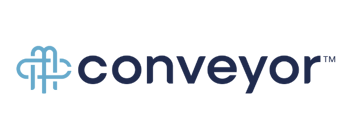Like most entrepreneurs, we get excited about sales calls. Whether on the phone or in person, every prospect interaction represents the opportunity to take on a new client – to work with a new business – and we love that! And after 20 years as business owners, there are few prospect questions we haven't heard.
What we've learned, however, is that it's not enough to respond well to your prospect questions.
The better approach is to anticipate the questions and create marketing content and materials that answer them before the prospect asks.
To give you some insight, check out 7 common questions we've been asked during the sales process – and what they've taught us about marketing businesses successfully.
1. What makes you different from the competition?
Try using phrases like "While other firms may do such-and-such, we take the approach that ... " or "Unlike most of our competition, we choose to ... "
Think about how you are better than the competition and then get that message across in sales letters, on your website, etc.
How to answer before it's asked: A website or sales proposal page entitled "Our Difference" allows you to spell out what makes your firm unique.
2. What can I expect if I engage with you?
Your prospects will want to know what kind of process you follow when engaging with customers.
The more information you give in the beginning, the stronger foundation you will lay for a great client relationship – especially if what you say will happen actually does!
How to answer before it's asked: Consider a "What to Expect" page on your website and/or sales proposals.
3. How can you help us?
Every firm should ask how their clients' businesses have improved after working with them.
Within the answer to that question is the answer to how you help your customers. Focus on the value you deliver here, not the things you do, make or sell.
How to answer before it's asked: All of your marketing materials should highlight the value of doing business with you.
Wherever you can – when networking, in sales communications, on your website – articulate how customers are better off after doing business with you.
4. Have you worked in my industry before?
A very common question, this one gives you the opportunity to either highlight your expertise in a certain market or to show how your skills/experience translate easily and valuably to your prospect's industry.
How to answer before it's asked: Post and actively maintain an "Industries Served" section on your website, and include case studies and customer stories in your marketing and sales materials.
5. How do you charge for your products and services?
Pricing strategies tend to vary based on whether you sell to businesses or consumers – or whether you sell a product or service.
During the sales process, it's important to have conversations about budgets as early as possible so no one's time is wasted and projects can be scaled successfully.
How to answer before it's asked: While you may choose not to publicize your pricing, consider posting package offerings with varying levels on your site so prospects can see that there are several ways to engage with you.
In an "About Us" section, you can address that clients can engage with you on an individual project, on an hourly or retainer basis, if that's appropriate for your business.
6. Can we talk to people who have worked with you?
Many prospects will feel comfortable hiring you only after they talk to one or two of your clients.
Having happy clients – current or past – that you can call on in these instances will always serve you well.
Remember to connect with each client before giving his/her name to a prospect and give as much background about the opportunity as possible.
How to answer before it's asked: Gather customer testimonials from satisfied clients and display them in your marketing and sales materials.
7. Who will be my primary contact?
If you do a good job during the sales process, your prospects will develop a strong rapport with you.
Bringing in someone new once the sale is closed may not go over well. Communicate early on about how the client work is structured and who the prospect will be working with directly.
How to answer before it's asked: A "How We Work" or "What to Expect" section of your website and/or sales proposals can explain your firm's structure – and highlight how your team works.
For example, if your clients always work with a principal in your business, you can articulate that. If they are assigned a dedicated account manager who is on call 24/7, you can let site visitors know that, too.
Always make things as easy and convenient as possible for visitors arriving at your website.
Staying a few steps ahead of your prospects will leave a positive impression that can often make a difference during the sales process.
The bottom line is: that it's not always about having all the answers. Sometimes it's about learning from the questions!



